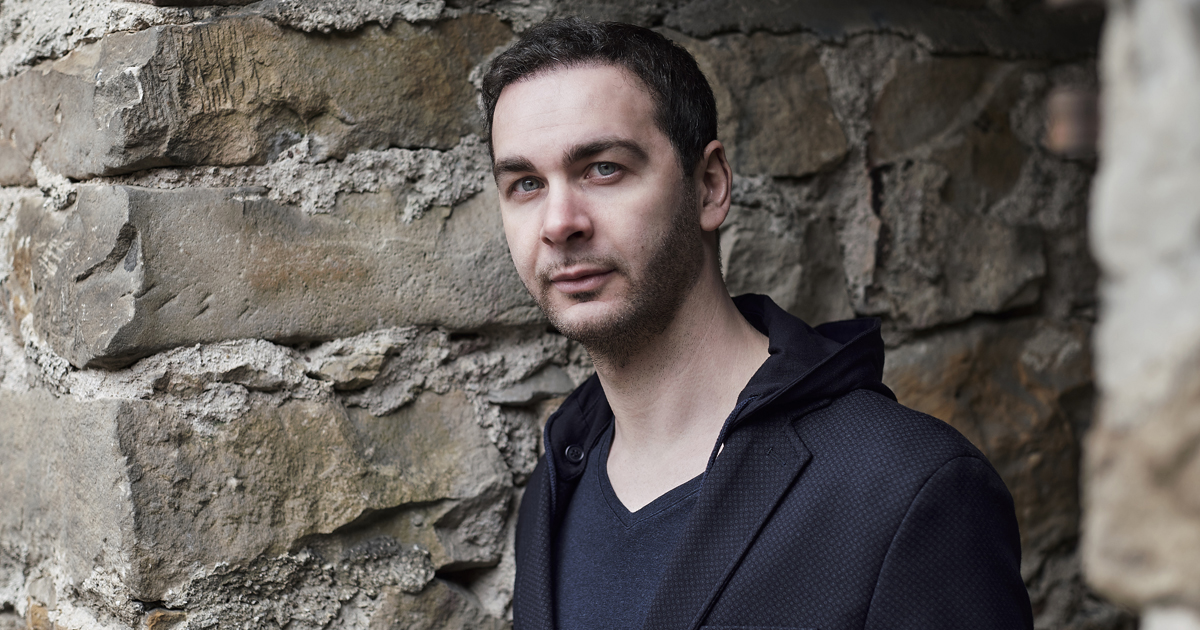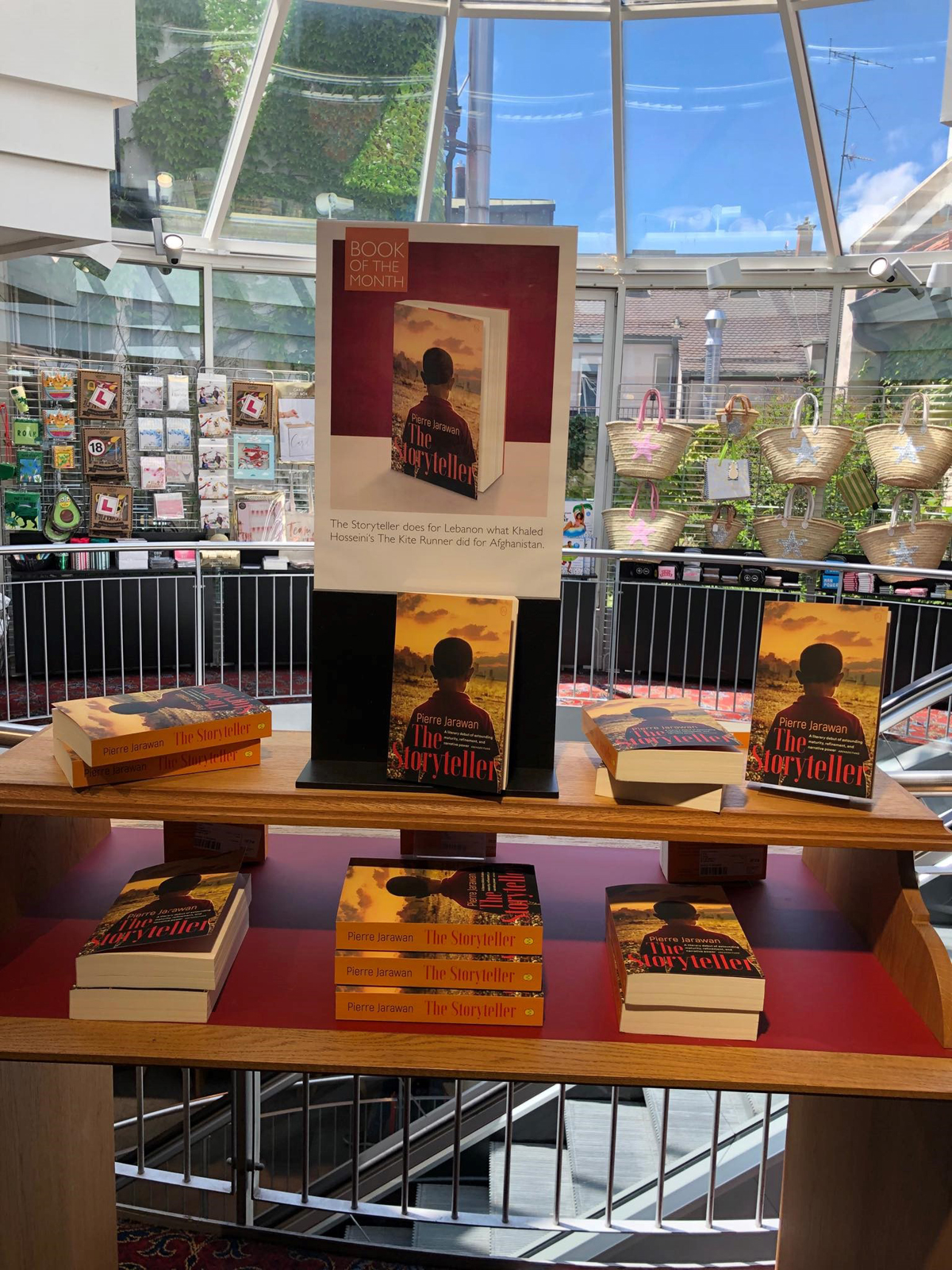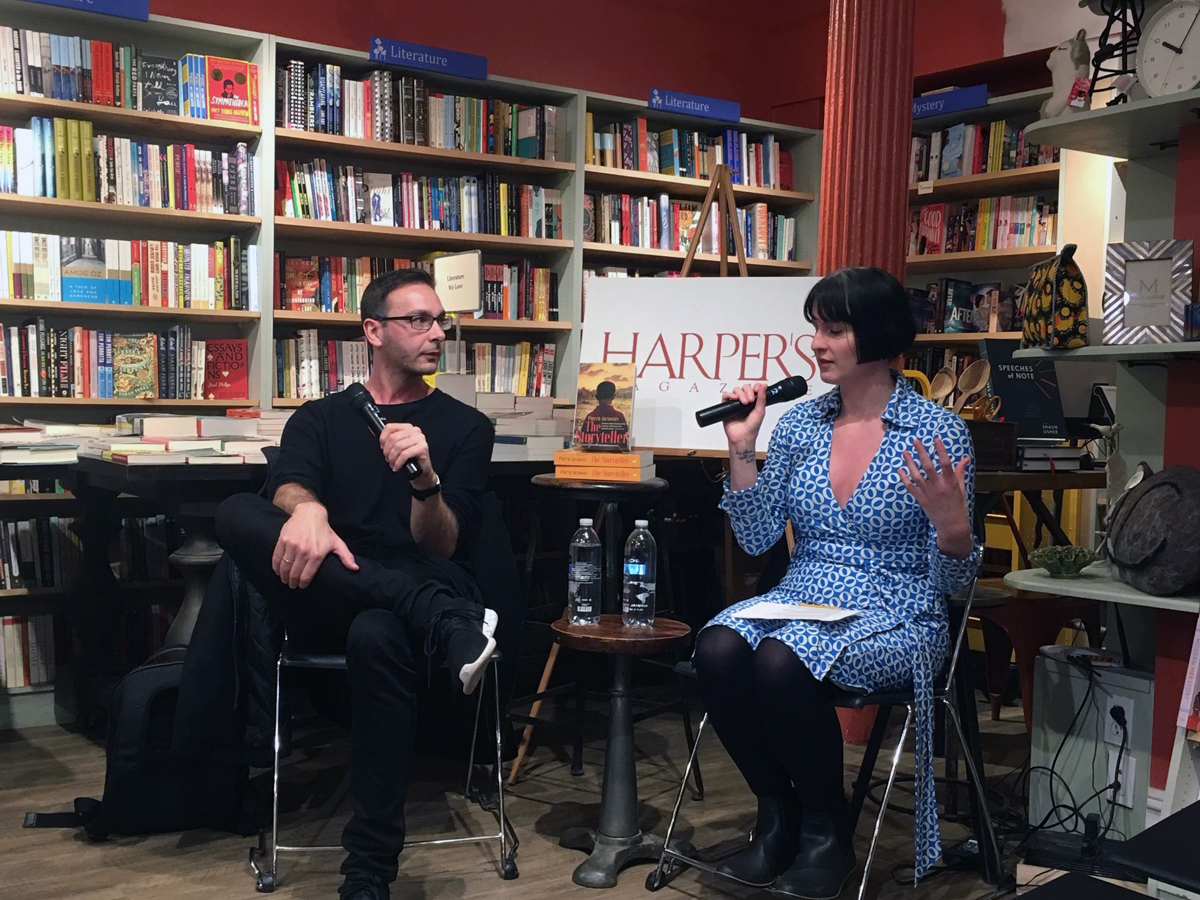Following the journey of a young boy in search of his missing Lebanese father, “The Storyteller” is the highly acclaimed novel by German-Lebanese author Pierre Jarawan. We spoke with him about his latest release, his relationship with the country and what motivates him to write about Lebanon.
 What was it like having Lebanese heritage and growing up in Germany?
What was it like having Lebanese heritage and growing up in Germany?
I was always proud to be half-Lebanese and half-German. In school, I was the only child who would eat Arabic bread in the schoolyard, so I made everybody jealous. I think I got the best of both worlds; my mother is German, my is father Lebanese, so I was fortunate enough to appreciate both cultures. We went on holiday to Lebanon almost every year, for instance. However, I also know that I had a privileged upbringing. Other people my age whose parents were both Lebanese found it much harder to adapt to their new environment in Germany, to embrace the culture and learn the language. When I think back, being half-Lebanese made me exotic but not a stranger. Today, when I work with refugees here, I sometimes tell them my story of my parents and that they left Lebanon because of the war.
Have you always felt a strong connection with Lebanon?
Oh, yes! When I was a child, we visited the country many times. And even when I grew older and did not travel to Lebanon every year, I never lost the emotional connection. Growing up also meant reading more about the history and questioning the idea of it being a “perfect country,” which is what I had always thought as a kid.
 What made you decide to write “The Storyteller”?
What made you decide to write “The Storyteller”?
I started writing poems and short stories when I was 13 years old. But it was only when I turned 30 that I realized I was most capable of writing about the thing closest to me: my identity. This identity, of course, is also connected with Lebanon. I did not want to tell my personal story, which would have been too boring for most readers. Instead, I chose to write a fictional story about a family torn between two countries from a personal point of view. When I started writing, I did not intend to write so much about Lebanon’s history and politics, yet I soon realized that almost everything is related to politics in Lebanon. Therefore, I spent a further two years doing research before I finally wrote “The Storyteller.”

Getting people interested in Lebanon, a beautiful and troubled country is probably the most amazing thing.
The novel’s main character, Samir, has a special bond with his father, a brilliant storyteller. Did your father tell you stories when you were younger?
Yes, he did. My father invented his own bedtime stories for us, and I know he has had a significant impact on my writing in general.
How much of the book mirrors your own experiences?
Well, the story is fictional — everything that keeps the story moving, everything that happens to the characters. But, of course, I am drawing from own experiences when it comes to emotions. I know how to describe Samir’s longing for Lebanon, because I longed for Lebanon when I was a child.
You just finished a promotional tour of the US. How was it?
It was surreal. Never in my life would I have imagined that I’d be invited to the US with my book. I ended up visiting 26 cities in six weeks. It was amazing but tiring. Nonetheless, it was interesting to talk to American readers about Lebanon. I showed them pictures and briefly explained the political system. All in all, it was an experience I will never forget.
 What would you say was the greatest challenge in writing “The Storyteller” and what has been most rewarding?
What would you say was the greatest challenge in writing “The Storyteller” and what has been most rewarding?
To be honest, it did not feel challenging when I wrote it. This book came from my heart; writing it was pure joy, and I loved every minute of it. Looking at the novel’s structure, the greatest challenge was probably to fit 30 years of Lebanese history without teaching readers a lesson. I wanted the historical parts to form part of the story of the characters’ journeys.
The biggest reward has been the way in which “The Storyteller” has changed my life. I can now be a full-time writer, a dream I have had since the age of 13. Moreover, the letters and emails I’ve received from readers have been so moving. A large portion of the audience didn’t know anything about Lebanon before they read the book. Can you image that some readers traveled to Beirut after reading the “The Storyteller”? I cannot express how delighted I was to receive photos of them in Beirut with my book. Getting people interested in Lebanon — a beautiful and troubled country — is probably the most amazing thing of all.
- WATCH NOW: Lebanon for the Dreamers
“The Storyteller” is available online and Librairie Antoine branches across Lebanon.
Loading
